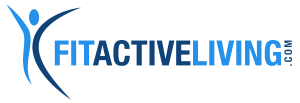Contents
No matter your exercise preferences, everyone who knows and truly understands fitness understands the importance of keeping the core healthy. This includes your abs, obliques, and back muscles to be strong in the middle, where the center of your strength is located. Some diehards swear by the plank to keep this area fit, while others genuinely believe the crunch is the end all be all. No matter where you stand in the plank vs crunches debate, there is one exercise that combines the benefits of both, the plank crunch!
When you hear the term plank crunch, the first thing you envision is a plank and being on your hands. This exercise takes the average plank to the next level, turning your body and moving it into a crunch position so that you work in multiple target areas simultaneously. Your core will thank you once you include this exercise into your weekly routine.
What is A Plank Crunch?
A combination of two exercises, the plank crunch uses methods from both the plank and the crunch to maximize your workout when you are working on the midsection and the back. This core area needs something that can work all the muscles at once, having them work together in unison by building strength in the core and defining the muscles in the abs and obliques. Some people refer to the plank crunch as the mountain climber exercise.
Plank Crunch Exercise Benefits & Muscles Used
Being able to use all the muscles in your core is something that the plank crunch targets and uses, no matter which traditional exercise you prefer. If you are doing a plank, you are not moving your obliques enough to keep them trim and strong. If you only focus on crunches, your back muscles do not get the same amount of attention as your front core muscles. With this exercise, these three areas move together and get the same amount of work so that you are targeting as much as you can without missing a muscle, literally.
Strength
The goal is to keep the core strong. With a plank crunch, you can build up muscle strength in the core and increase muscle definition. Depending on which move you were using prior to the plank crunch, one of your core muscle groups was not as strong as it could be. With it, you are increasing their true potential.
Flexibility
The more you include the plank crunch in your routine, the more flexible you will become. Not only will it trim the inches from the waistline, but it will boost the flexibility in your arms, back and hip flexors.
How To Do A Plank Crunch

- Get into the plank position on your hands with your toes touching the ground. Your body should be in a straight line.
- Tighten your core and draw in your belly button while maintaining the plank.
- Bend your right knee and bring it up towards your chest, while keeping your core contracted.
- Then, return to the plank position.
- Repeat with your left knee and leg.
A common mistake is letting the lower back cave in. Focus on keeping your back straight and not letting it drop. Also, you can determine what speed is best for you in driving your knees up. The faster you drive them, the more cardio benefit you will gain from the exercise. The slower you move them, the less stability you will have in performing the crunch. So our advice is to try performing it at different speeds to find what feels best to you!
Plank Crunch Modifications
Depending on your fitness level, there are some modifications you can do so that you are still building muscle and getting the results you need.
Easier Modifications
Modifications designed for beginners make it accommodating for those who want to learn and take advantage of this exercise. First, if you are not familiar with the plank, you need to learn to hold a plank without the crunch before you move forward. Building strength in the core is essential so that you can do the second part and maintain your strength through the exercise.
Also, you can come down on your knees when in plank position and keep a knee down when you add the crunch. This lets you work your core comfortably and gain some stability while strengthening your entire core.
Harder Modifications
Really feel the burn when you do a side plank crunch instead of a standard plank crunch. Pull your crunches from the side plank and force the obliques to work!
You can also shift your plank to a declining position to force your upper body to carry more of the weight during the exercise.
Another modification you can try is the slide plank. In the slide plank, you slide both feet forward and crunch both legs at the same time while holding a plank position!
Other Plank Crunch Exercises
Start mixing up your plank crunches throughout the week when you add one of the following plank crunch exercises to your routine, bringing in more muscle groups for an overall workout.
Sphinx Plank Crunch
In the Sphinx Plank Crunch, you need to start in a standard plank position. Pull one leg out to the side where your obliques are, then tuck your leg back into the abs for a standard crunch. Make sure you rotate this out throughout rotations.
Spiderman Plank Crunch
The spiderman plank crunch starts in a high plank position. When your upper body comes down, your leg comes out, with your knee meeting your elbow. Pull your leg back, go to a high plank position, and alternate.
Side Plank Crunch
The side plank crunch really takes your obliques workout up a notch. Lie on your side, then bring your body up into a side plank. Hold and ensure that you are keeping your balance. Bend the opposite knee until it reaches the elbow, tightening your core muscles all the way through. Do several reps and then repeat on the opposite side.
How Often Should I Do Plank Crunches?
If you are just getting into plank crunches and not sure how often you should do them, introduce them slowly in place of your preferred core exercise. The intervals starting out should not be over 30 seconds on each side, and you should probably start with 3-5 reps. As you get stronger from the exercise, you can increase the frequency to 45-second intervals, and then add 1 or 2 more reps each week. Keep adding 15 seconds to your intervals and at least 1 rep weekly to improve your stamina and strength from the exercise.
If you are someone who takes their fitness seriously, then you may start at a much higher interval and do more often throughout the week. It is an ideal exercise to add to your routine when you are running short on time or just want to mix up your routine. If you are looking to increase muscle definition and have certain fitness goals for that area of your body, increase the amount of reps you are doing. Also, add it to your routine 3-4 times a week to get the best results.
Who Shouldn’t Do A Plank Crunch?
While the plank crunch is one of the most effective exercises that a person can do, some need to avoid it for their health and protection. Foremost, pregnant women should not be attempting to complete the plank crunch because of the pressure around the baby. There is too much risk for damage to the uterus and/or the umbilical cord.
Others who should probably avoid doing a plank crunch are those who suffer from chronic back pain. If you have experienced an injury to your back and have severe pain regularly, then a plank crunch could only irritate that pain and cause it to flare again. As you shift your body into position and then move from a standard plank to a plank crunch, you risk causing further damage. You need to speak with a doctor first before trying this exercise.
Wrap-Up
Plank crunches combine the traditional plank and a crunch into one super charged core exercise on steroids! If you are not working this effective core exercise into your workouts, you need to find time to do so. Your body will thank you!
If you are a beginner, look into the easier modifications listed above to help strengthen your core muscles and get going. If you are more advanced, check out the harder modifications and other plank crunch exercises to take your workouts to the next level!
